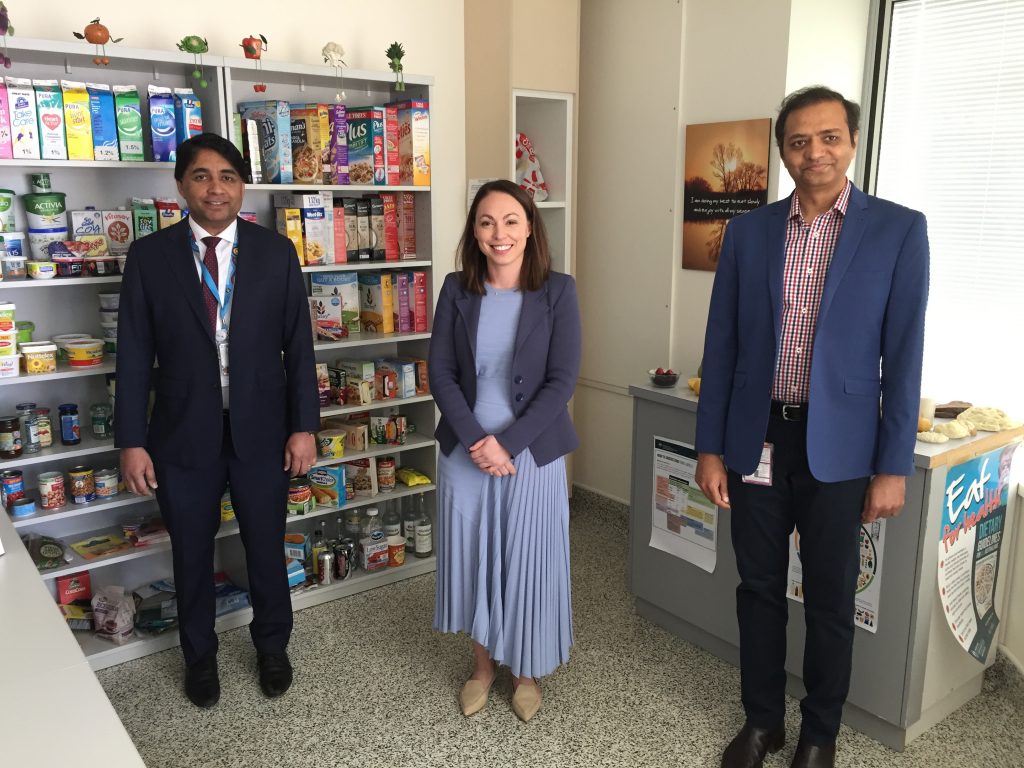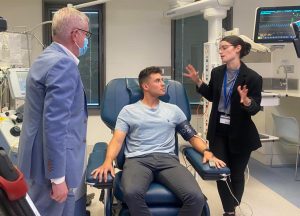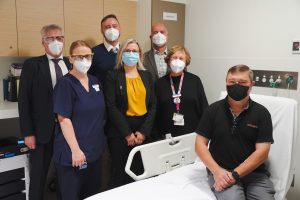Central Adelaide Local Health Network (CALHN) researchers are leading ground-breaking research into the complications caused by a new and commonly prescribed drug for Type 2 diabetes.
The new class of drug – sodium-glucose cotransporter-2 inhibitors (SGLT2i) – has revolutionised management for diabetes patients. As well as controlling blood glucose, it reduces the risk of heart attack, improves heart failure and helps prevent kidney disease.
But there are serious side effects that can be life-threatening.
The drugs can trigger the serious complication diabetic ketoacidosis (DKA) in patients who are unwell or requiring surgery.
Lead researchers, endocrinologists Dr Emily Meyer and Dr David Jesudason, anaesthetist Dr Venkatesan Thiruvenkatarajan and their team found that the side effects are avoidable if patients stop taking SGLT2i inhibitors during serious illness or before surgery.
The ground-breaking research has been published internationally, including in Diabetes Care and the British Journal of Anaesthesia, and is referenced in guidelines for surgery in Australia and overseas.
“More than 15 per cent of all surgical patients have diabetes,” Dr Meyer said.
“By predicting risk of DKA in pre-operative patients, we will improve patient outcomes and reduce the risk of this serious complication.”
But stopping the routine drug in an attempt to avoid DKA also has its caveats – such as hyperglycaemia, which can impair wound healing and increase the risk of peri-operative infections.
“It’s not optimal to stop a patient’s medication, but with what we currently know now, it’s the safest option.
“However, not all patients with diabetes are at risk of DKA, so the next phase of the research is work to understand who are at risk and who isn’t.
“We do not yet understand why only some patients develop peri-operative DKA and have little understanding of the relationships between DKA, the choice of SGLT2i, and other precipitating factors.
“We are looking to address these factors in our current research to improve drug safety and inform patient care.”
The researchers are undertaking a number of projects to progress this vital work and have been awarded grants from The Hospital Research Foundation and Diabetes SA.



